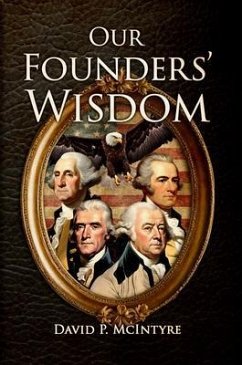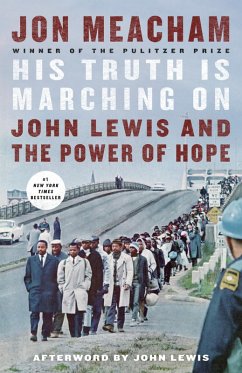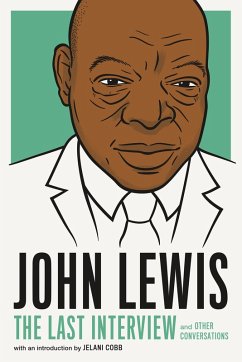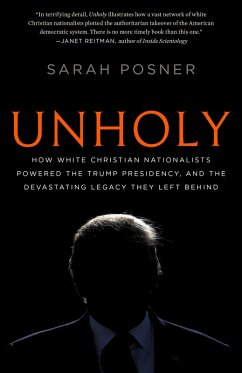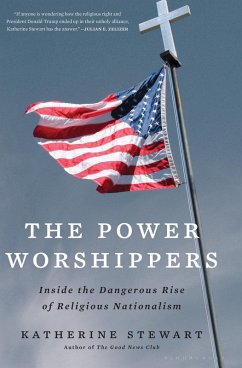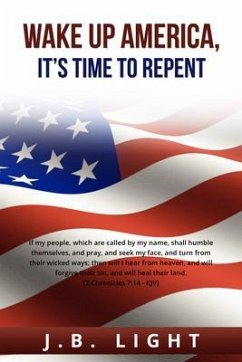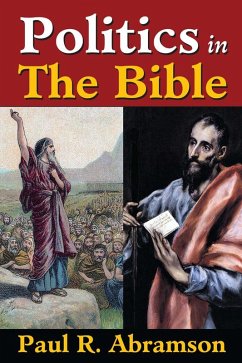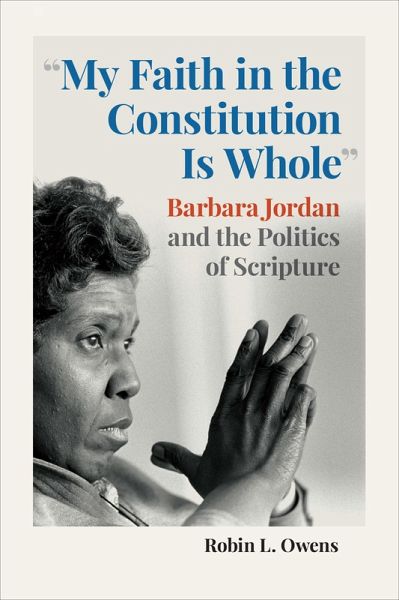
"My Faith in the Constitution Is Whole" (eBook, ePUB)
Barbara Jordan and the Politics of Scripture

PAYBACK Punkte
19 °P sammeln!
How Barbara Jordan used sacred and secular scriptures in her social activismUS Congresswoman Barbara Jordan is well-known as an interpreter and defender of the Constitution, particularly through her landmark speech during Richard Nixon's 1974 impeachment hearings. However, before she developed faith in the Constitution, Jordan had faith in Christianity. In My Faith in the Constitution is Whole: Barbara Jordan and the Politics of Scripture, Robin L. Owens shows how Jordan turned her religious faith and her faith in the Constitution into a powerful civil religious expression of her social activi...
How Barbara Jordan used sacred and secular scriptures in her social activism
US Congresswoman Barbara Jordan is well-known as an interpreter and defender of the Constitution, particularly through her landmark speech during Richard Nixon's 1974 impeachment hearings. However, before she developed faith in the Constitution, Jordan had faith in Christianity. In My Faith in the Constitution is Whole: Barbara Jordan and the Politics of Scripture, Robin L. Owens shows how Jordan turned her religious faith and her faith in the Constitution into a powerful civil religious expression of her social activism.
Owens begins by examining the lives and work of the nineteenth-century Black female orator-activists Maria W. Stewart and Anna Julia Cooper. Stewart and Cooper fought for emancipation and women's rights by scripturalizing, or using religious scriptures to engage in political debate. Owens then demonstrates how Jordan built upon this tradition by treating the Constitution as an American scripture to advocate for racial justice and gender equality. Case studies of key speeches throughout Jordan's career show how she quoted the Constitution and other founding documents as sacred texts, used them as sociolinguistic resources, and employed a discursive rhetorical strategy of indirection known as signifying on scriptures.
Jordan's particular use of the Constitutiondeeply connected with her background and religious, racial, and gender identityrepresents the agency and power reflected in her speeches. Jordan's strategies also illustrate a broader phenomenon of scripturalization outside of institutional religion and its rhetorical and interpretive possibilities.
US Congresswoman Barbara Jordan is well-known as an interpreter and defender of the Constitution, particularly through her landmark speech during Richard Nixon's 1974 impeachment hearings. However, before she developed faith in the Constitution, Jordan had faith in Christianity. In My Faith in the Constitution is Whole: Barbara Jordan and the Politics of Scripture, Robin L. Owens shows how Jordan turned her religious faith and her faith in the Constitution into a powerful civil religious expression of her social activism.
Owens begins by examining the lives and work of the nineteenth-century Black female orator-activists Maria W. Stewart and Anna Julia Cooper. Stewart and Cooper fought for emancipation and women's rights by scripturalizing, or using religious scriptures to engage in political debate. Owens then demonstrates how Jordan built upon this tradition by treating the Constitution as an American scripture to advocate for racial justice and gender equality. Case studies of key speeches throughout Jordan's career show how she quoted the Constitution and other founding documents as sacred texts, used them as sociolinguistic resources, and employed a discursive rhetorical strategy of indirection known as signifying on scriptures.
Jordan's particular use of the Constitutiondeeply connected with her background and religious, racial, and gender identityrepresents the agency and power reflected in her speeches. Jordan's strategies also illustrate a broader phenomenon of scripturalization outside of institutional religion and its rhetorical and interpretive possibilities.
Dieser Download kann aus rechtlichen Gründen nur mit Rechnungsadresse in A, D ausgeliefert werden.





